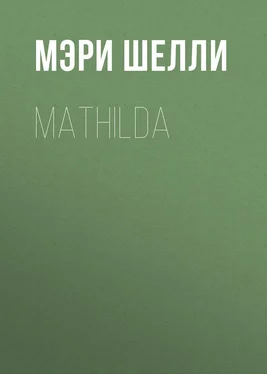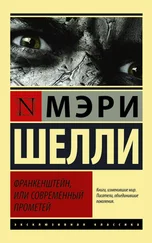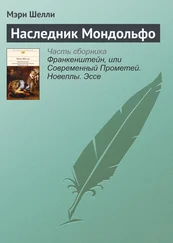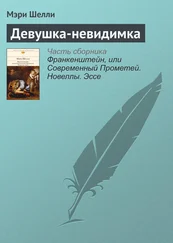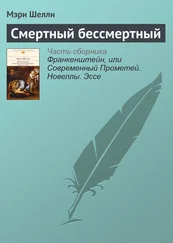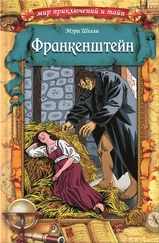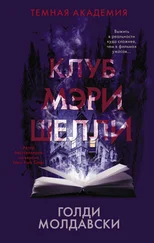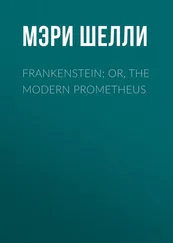Мэри Шелли - Mathilda
Здесь есть возможность читать онлайн «Мэри Шелли - Mathilda» — ознакомительный отрывок электронной книги совершенно бесплатно, а после прочтения отрывка купить полную версию. В некоторых случаях можно слушать аудио, скачать через торрент в формате fb2 и присутствует краткое содержание. Жанр: literature_19, foreign_antique, foreign_prose, на английском языке. Описание произведения, (предисловие) а так же отзывы посетителей доступны на портале библиотеки ЛибКат.
- Название:Mathilda
- Автор:
- Жанр:
- Год:неизвестен
- ISBN:нет данных
- Рейтинг книги:3 / 5. Голосов: 1
-
Избранное:Добавить в избранное
- Отзывы:
-
Ваша оценка:
- 60
- 1
- 2
- 3
- 4
- 5
Mathilda: краткое содержание, описание и аннотация
Предлагаем к чтению аннотацию, описание, краткое содержание или предисловие (зависит от того, что написал сам автор книги «Mathilda»). Если вы не нашли необходимую информацию о книге — напишите в комментариях, мы постараемся отыскать её.
Mathilda — читать онлайн ознакомительный отрывок
Ниже представлен текст книги, разбитый по страницам. Система сохранения места последней прочитанной страницы, позволяет с удобством читать онлайн бесплатно книгу «Mathilda», без необходимости каждый раз заново искать на чём Вы остановились. Поставьте закладку, и сможете в любой момент перейти на страницу, на которой закончили чтение.
Интервал:
Закладка:
MATHILDA 19 19 The name is spelled thus in the MSS of Mathilda and The Fields of Fancy , though in the printed Journal (taken from Shelley and Mary ) and in the Letters it is spelled Matilda . In the MS of the journal, however, it is spelled first Matilda , later Mathilda .
CHAP. I
Florence. Nov. 9th 1819
It is only four o'clock; but it is winter and the sun has already set: there are no clouds in the clear, frosty sky to reflect its slant beams, but the air itself is tinged with a slight roseate colour which is again reflected on the snow that covers the ground. I live in a lone cottage on a solitary, wide heath: no voice of life reaches me. I see the desolate plain covered with white, save a few black patches that the noonday sun has made at the top of those sharp pointed hillocks from which the snow, sliding as it fell, lay thinner than on the plain ground: a few birds are pecking at the hard ice that covers the pools – for the frost has been of long continuance. 20 20 Mary has here added detail and contrast to the description in F of F – A , in which the passage "save a few black patches … on the plain ground" does not appear.
I am in a strange state of mind. 21 21 The addition of "I am alone … withered me" motivates Mathilda's state of mind and her resolve to write her history.
I am alone – quite alone – in the world – the blight of misfortune has passed over me and withered me; I know that I am about to die and I feel happy – joyous. – I feel my pulse; it beats fast: I place my thin hand on my cheek; it burns: there is a slight, quick spirit within me which is now emitting its last sparks. I shall never see the snows of another winter – I do believe that I shall never again feel the vivifying warmth of another summer sun; and it is in this persuasion that I begin to write my tragic history. Perhaps a history such as mine had better die with me, but a feeling that I cannot define leads me on and I am too weak both in body and mind to resist the slightest impulse. While life was strong within me I thought indeed that there was a sacred horror in my tale that rendered it unfit for utterance, and now about to die I pollute its mystic terrors. It is as the wood of the Eumenides none but the dying may enter; and Oedipus is about to die. 22 22 Mathilda too is the unwitting victim in a story of incest. Like Oedipus, she has lost her parent-lover by suicide; like him she leaves the scene of the revelation overwhelmed by a sense of her own guilt, "a sacred horror"; like him, she finds a measure of peace as she is about to die.
What am I writing? – I must collect my thoughts. I do not know that any will peruse these pages except you, my friend, who will receive them at my death. I do not address them to you alone because it will give me pleasure to dwell upon our friendship in a way that would be needless if you alone read what I shall write. I shall relate my tale therefore as if I wrote for strangers. You have often asked me the cause of my solitary life; my tears; and above all of my impenetrable and unkind silence. In life I dared not; in death I unveil the mystery. Others will toss these pages lightly over: to you, Woodville, kind, affectionate friend, they will be dear – the precious memorials of a heart-broken girl who, dying, is still warmed by gratitude towards you: 23 23 The addition of "the precious memorials … gratitude towards you," by its suggestion of the relationship between Mathilda and Woodville, serves to justify the detailed narration.
your tears will fall on the words that record my misfortunes; I know they will – and while I have life I thank you for your sympathy.
But enough of this. I will begin my tale: it is my last task, and I hope I have strength sufficient to fulfill it. I record no crimes; my faults may easily be pardoned; for they proceeded not from evil motive but from want of judgement; and I believe few would say that they could, by a different conduct and superior wisdom, have avoided the misfortunes to which I am the victim. My fate has been governed by necessity, a hideous necessity. It required hands stronger than mine; stronger I do believe than any human force to break the thick, adamantine chain that has bound me, once breathing nothing but joy, ever possessed by a warm love & delight in goodness, – to misery only to be ended, and now about to be ended, in death. But I forget myself, my tale is yet untold. I will pause a few moments, wipe my dim eyes, and endeavour to lose the present obscure but heavy feeling of unhappiness in the more acute emotions of the past. 24 24 At this point two sheets have been removed from the notebook. There is no break in continuity, however.
I was born in England. My father was a man of rank: 25 25 The descriptions of Mathilda's father and mother and the account of their marriage in the next few pages are greatly expanded from F of F – A , where there is only one brief paragraph. The process of expansion can be followed in S-R fr and in F of F – B . The development of the character of Diana (who represents Mary's own mother, Mary Wollstonecraft) gave Mary the most trouble. For the identifications with Mary's father and mother, see Nitchie, Mary Shelley , pp. 11, 90-93, 96-97.
he had lost his father early, and was educated by a weak mother with all the indulgence she thought due to a nobleman of wealth. He was sent to Eton and afterwards to college; & allowed from childhood the free use of large sums of money; thus enjoying from his earliest youth the independance which a boy with these advantages, always acquires at a public school.
Under the influence of these circumstances his passions found a deep soil wherein they might strike their roots and flourish either as flowers or weeds as was their nature. By being always allowed to act for himself his character became strongly and early marked and exhibited a various surface on which a quick sighted observer might see the seeds of virtues and of misfortunes. His careless extravagance, which made him squander immense sums of money to satisfy passing whims, which from their apparent energy he dignified with the name of passions, often displayed itself in unbounded generosity. Yet while he earnestly occupied himself about the wants of others his own desires were gratified to their fullest extent. He gave his money, but none of his own wishes were sacrifised to his gifts; he gave his time, which he did not value, and his affections which he was happy in any manner to have called into action.
I do not say that if his own desires had been put in competition with those of others that he would have displayed undue selfishness, but this trial was never made. He was nurtured in prosperity and attended by all its advantages; every one loved him and wished to gratify him. He was ever employed in promoting the pleasures of his companions – but their pleasures were his; and if he bestowed more attention upon the feelings of others than is usual with schoolboys it was because his social temper could never enjoy itself if every brow was not as free from care as his own.
While at school, emulation and his own natural abilities made him hold a conspicuous rank in the forms among his equals; at college he discarded books; he believed that he had other lessons to learn than those which they could teach him. He was now to enter into life and he was still young enough to consider study as a school-boy shackle, employed merely to keep the unruly out of mischief but as having no real connexion with life – whose wisdom of riding – gaming &c. he considered with far deeper interest – So he quickly entered into all college follies although his heart was too well moulded to be contaminated by them – it might be light but it was never cold. He was a sincere and sympathizing friend – but he had met with none who superior or equal to himself could aid him in unfolding his mind, or make him seek for fresh stores of thought by exhausting the old ones. He felt himself superior in quickness of judgement to those around him: his talents, his rank and wealth made him the chief of his party, and in that station he rested not only contented but glorying, conceiving it to be the only ambition worthy for him to aim at in the world.
Читать дальшеИнтервал:
Закладка:
Похожие книги на «Mathilda»
Представляем Вашему вниманию похожие книги на «Mathilda» списком для выбора. Мы отобрали схожую по названию и смыслу литературу в надежде предоставить читателям больше вариантов отыскать новые, интересные, ещё непрочитанные произведения.
Обсуждение, отзывы о книге «Mathilda» и просто собственные мнения читателей. Оставьте ваши комментарии, напишите, что Вы думаете о произведении, его смысле или главных героях. Укажите что конкретно понравилось, а что нет, и почему Вы так считаете.
